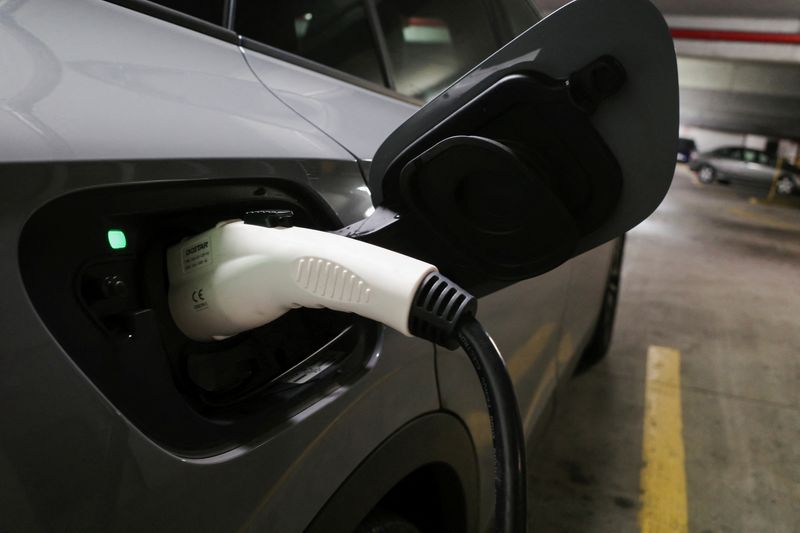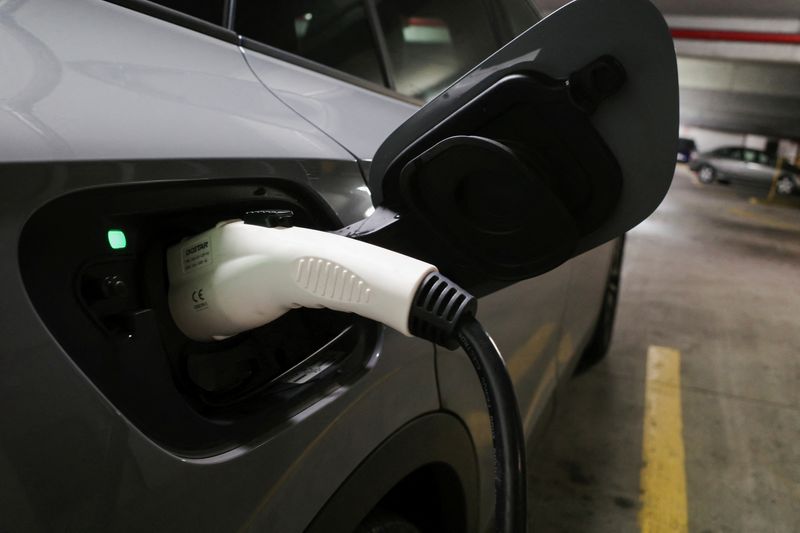
By David Shepardson
WASHINGTON (Reuters) -U.S. President Donald Trump on Monday took aim at electric vehicles, revoking a 2021 executive order signed by his predecessor Joe Biden that sought to ensure half of all new vehicles sold in the United States by 2030 were electric.
Biden’s 50% target, which was not legally binding, had won the support of U.S. and foreign automakers.
Trump said in an executive order he was halting distribution of unspent government funds for vehicle charging stations from a $5 billion fund, called for ending a waiver for states to adopt zero emission vehicle rules by 2035 and said his administration would consider ending EV tax credits.
Trump plans to direct the Environmental Protection Agency to reconsider rules mandating more stringent emissions rules that would require automakers to sell between 30% to 56% EVs by 2032 in order to comply with federal emissions rules, as well as parallel rules issued by the U.S. Transportation Department.
Trump said in his order on Monday he was seek the repeal of a waiver granted to California in December by the EPA allowing the state to end the sale of gasoline-only vehicles by 2035. That rule has been adopted by 11 other states.
Trump said the EPA should terminate “where appropriate, state emissions waivers that function to limit sales of gasoline-powered automobiles.”
His order said Trump’s administration should consider “the elimination of unfair subsidies and other ill-conceived government-imposed market distortions that favor EVs over other technologies and effectively mandate their purchase.”
Trump said previously he could take other actions on EVs, including seeking to repeal the $7,500 consumer tax credit for electric-vehicle purchases as part of broader tax-reform legislation.

Trump campaigned on ending Biden’s “EV mandate,” without spelling out specific targeted policies. Biden repeatedly refused to endorse setting a date to end the sale of internal combustion engines.
Trump promised while campaigning to boost U.S. oil production, even as it has hit record highs, and to roll back Biden’s clean-energy initiatives, which also include subsidies for wind and solar power and the mass production of hydrogen.
This post is originally published on INVESTING.




